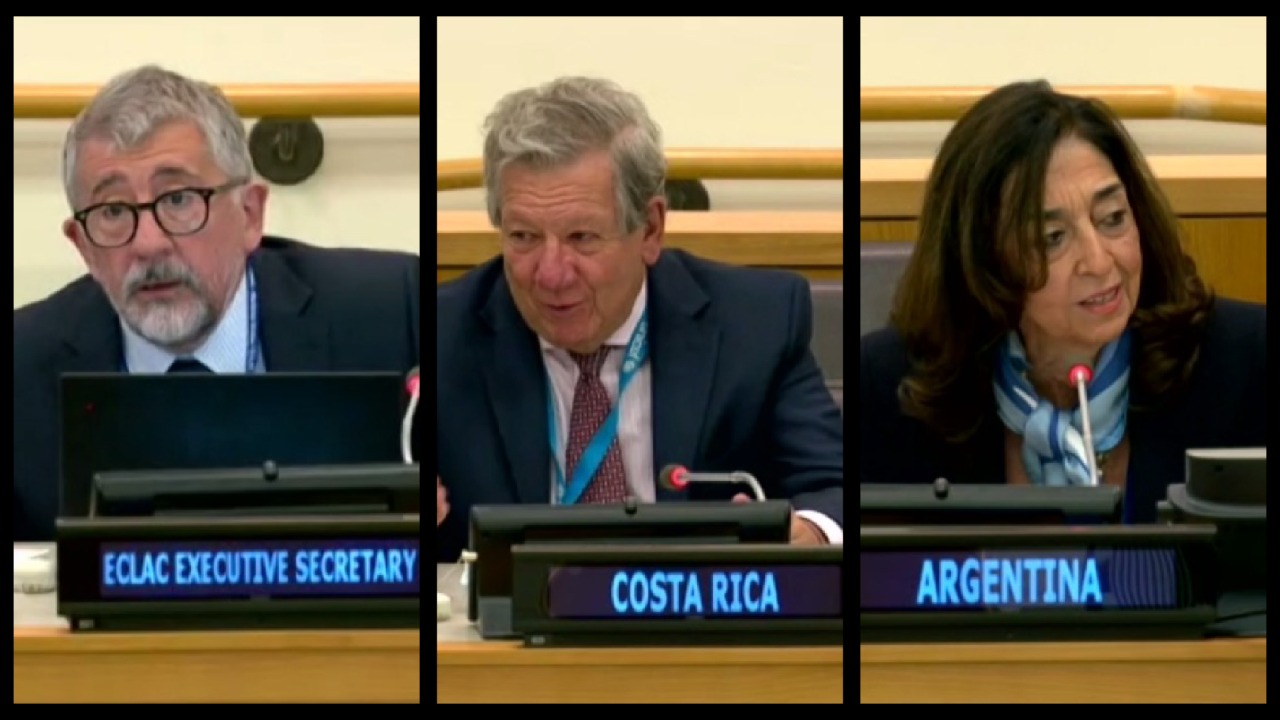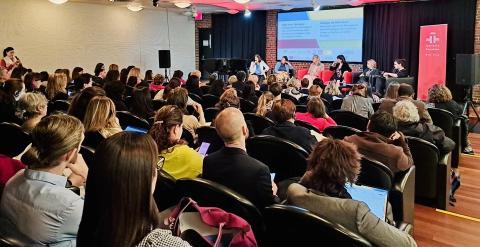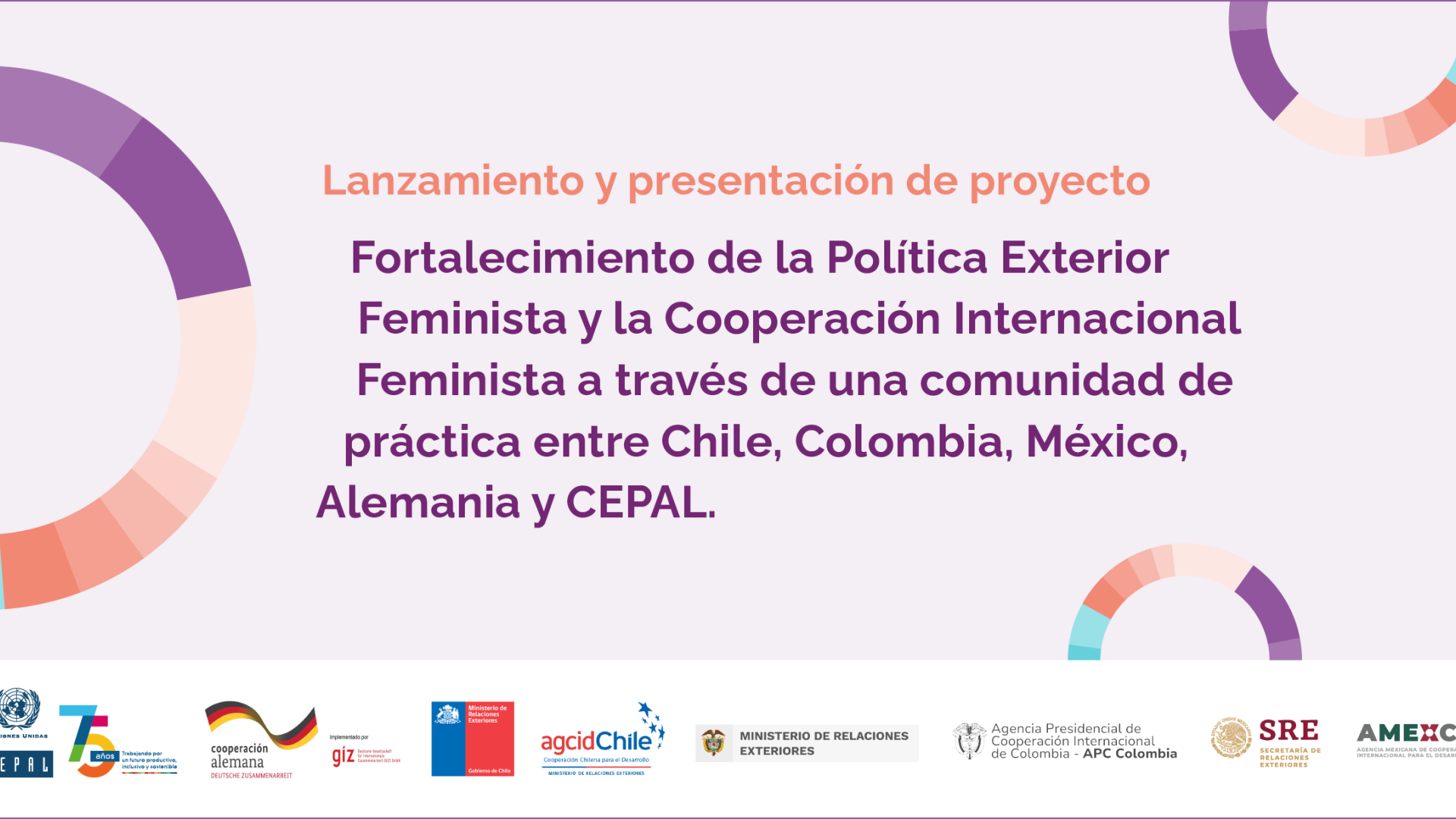Press Release
Mario Cimoli, Acting Executive Secretary of the Economic Commission for Latin America and the Caribbean (ECLAC), analyzed the complex socioeconomic context in the region today in view of the armed conflict between Russia and Ukraine at a meeting with the permanent representatives of the regional Commission’s member countries held at United Nations headquarters in New York.
The meeting was convened by the UN Permanent Missions of Costa Rica and Argentina in their respective capacities as outgoing and incoming president of ECLAC. The meeting was opened by Ambassador Rodrigo Carazo, Permanent Representative of Costa Rica to the United Nations and Ambassador María del Carmen Squeff, Permanent Representative of Argentina to the United Nations.
“When Latin America and the Caribbean has not yet managed to recover from the COVID-19 pandemic, the region is already beginning to suffer the consequences of the war between Russia and Ukraine,” Mario Cimoli asserted in his remarks.
He specified that, according to new estimates released by ECLAC today, in the current context in which the conflict in Ukraine has worsened inflationary problems, increased financial costs and volatility, average growth predicted for the region is now 1.8% – less than the 2.1% projected in January 2022. The economies of South America will grow by 1.5%, Central America and Mexico 2.3%, while the Caribbean (excluding Guyana) will see growth of 4.7%, he stated.
The UN Commission senior representative added that the armed conflict is impacting the economies of Latin America and the Caribbean through international trade with the countries involved in the conflict, but is also having indirect effects on global activity and trade dynamics with the region’s main trade partners in the region – the United States, China and the European Union – stressing external restrictions.
The ECLAC Acting Executive Secretary pointed out that the war in Ukraine has caused price increases in commodities, especially fossil fuels, some metals, food and fertilizers.
In this regard, he warned of the impact of rising food prices on the region’s most vulnerable population, saying that this increase will strongly affect the first three quintiles of the population and the small island developing states (SIDS) of the Caribbean.
“In other words, the poor will become poorer, and the excluded more excluded. For this reason, food security must be a priority for the region,” he underscored.
He likewise pointed to insufficient regional production of fossil fuels and refined products for the internal market and called for regional integration to mitigate trade vulnerability, optimize energy supply and increase the use of infrastructure.
To tackle this scenario, Mario Cimoli recommended that the countries implement an anti-inflationary policy to utilize all available policy instruments, not only interest rates.
He also said that the region must improve food security mechanisms, for instance, considering proposals like the one presented in June 2020 by ECLAC and the FAO calling for an Anti-Hunger Grant, which could take the form of cash transfers, food baskets or vouchers for the entire population living in extreme poverty.
Cimoli also stressed the need to involve the private sector in the political response, especially in the world grain market. Furthermore, he urged international financial institutions to be available to cover the financing needs of the countries of Latin America and the Caribbean.
Finally, he called for political dialogue to promote collective regional action to move forward on self-sufficiency in food, fertilizers, energy, manufacturing and financing for development, and to strengthen regional cooperation in the context of the Community of Latin American and Caribbean States (CELAC).



